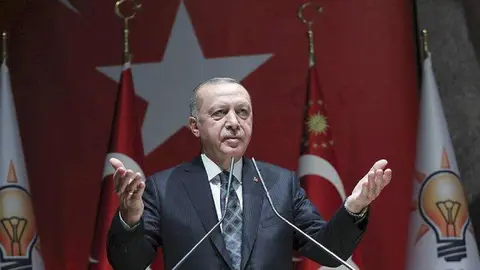Vote to punish Erdogan

The undisputed victory of the social democrats of the Republican People's Party (CHP), the party founded by Mustafa Kemal Ataturk, has even prompted Erdogan to announce that he will not stand for another term in office, no doubt aware that the favourable winds that led him to establish a deeply personalist regime in the country have clearly turned against him.
The Justice and Development Party (AKP) has not only failed to win back Istanbul and Ankara, but has also lost dozens of cities to the Kemalists of the CHP.
Ekrem Imagoglu, mayor of Istanbul, the country's economic capital, received massive voter support, with an absolute majority in 26 of the 39 districts of the great city straddling two continents. The AKP has seen itself take bastions it considered impregnable, such as Üsküdar, Gaziosmanpasa and Bayrampasa.
The CHP has gained a similar advantage in Ankara, Izmir, Bursa and Antalya, which means it dominates the country's five largest agglomerations. The AKP Islamists have thus seen their municipal power reduced to rural areas. And not all of it, as large areas near the Black Sea and in central Anatolia have also turned their backs on the AKP. The most significant case is that of Adiyaman, the region hard hit by the 2013 earthquake, whose reconstruction work has not been judged fast and solid enough to renew a mandate that has always fallen on the Islamist side.
In the country as a whole, the CHP won 37.5% of the vote, almost three points ahead of the AKP. Its victory is all the more significant given that the party founded by Kemal Ataturk a century ago had not exceeded 25% since Erdogan became head of government before becoming president and amending the constitution to assume executive powers.
CHP national leader Özgu Özel used election night to send a message to the Erdogan government: "The voters have decided to change and put an end to the imbalance of power in our country. The CHP has won a historic victory, the message of which could not be clearer: We want the rule of law back".
Among the reasons for the setback suffered by Erdogan and the AKP, the main one is undoubtedly inflation, which is running at a staggering 70%, with a 61% devaluation of the lira. Several local analysts also attribute the setback to the rise of the Yeniden Refah Party (YRP), also Islamist like the AKP but much more radical, which in these elections has managed to position itself as the fourth political force, even snatching two provinces from the AKP.
Within the Justice and Development party there are voices that criticise the excessive prominence that President Erdogan took on in the campaign for these municipal elections. This overexposure led him to hold up to four rallies a day. Therefore, by trying to turn the elections into a plebiscite against himself, he cannot now shake off the consequences of the poor results.
In any case, it would be foolhardy to take Erdogan's first reaction as an immovable oath. One need only look to the western end of the Mediterranean for the Turkish president to find a compelling example of how to hold on to power, and cling to it tooth and nail even as he cascades a string of election losses.


